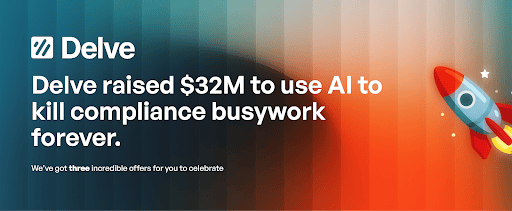- Enterprise AI Daily
- Posts
- Meta’s AI Shuffle, Lawsuits in Speech-to-Text, and Who’s Blaming AI for Layoffs
Meta’s AI Shuffle, Lawsuits in Speech-to-Text, and Who’s Blaming AI for Layoffs
How boardrooms are rewriting their playbooks as AI’s impact gets messier
It’s Monday, and the AI news cycle is serving us everything at once: corporate restructurings, lawsuits, and even governments redrawing priorities. Today we’ll unpack Meta’s fourth AI shake-up in six months, what it signals for enterprise teams, and how AI is increasingly becoming the scapegoat, or shield, for tough business calls.
Meta’s revolving door of AI restructuring
Meta has hit the reset button on its AI org chart for the fourth time in six months. The latest restructuring reportedly moves teams closer to product units in a bid to accelerate commercial applications of its generative AI research. Translation: the lab work hasn’t been converting into product traction fast enough.
This matters because Meta isn’t alone; every Fortune 500 leader is staring at the same org design puzzle: how do you structure AI teams so they actually deliver business results?
Here’s the enterprise playbook we can glean from Meta’s turbulence:
The central lab conundrum: Meta’s Fundamental AI Research (FAIR) group has long been the crown jewel, but housing AI only in a central lab makes it harder to tie research breakthroughs to product adoption. Contrast this with Microsoft, which embeds AI talent directly into product teams while using OpenAI partnerships as an “innovation overflow tank.”
Product-first pressure: Meta’s investors are impatient. Threads, Reels, WhatsApp, and even its ad engine all need AI differentiation, but progress has lagged. Google has already tied DeepMind into Google DeepMind (a hybrid research-plus-product team) and is rolling out Gemini across Search, Docs, and Ads. Meta risks looking scattered in comparison.
Talent churn risk: Reorganizations this frequent are a cultural earthquake. Top researchers don’t want to spend six months relearning who they report to. When leadership fails to give clarity, recruiters from Anthropic, OpenAI, or startups start circling. Enterprises should note: stability is as much of a retention tool as salary.
Governance gap: Constant restructuring often means governance is playing catch-up. How are models trained, deployed, and monitored when reporting lines keep shifting? If Meta is struggling here, imagine the risks for smaller enterprises without its resources.
For enterprise leaders, the takeaway is not “avoid restructuring.” Iteration is part of scaling new capabilities. The danger is over-rotating, or swinging from a central AI lab to federated product teams and back again without a north star.
The winning formula looks more like:
A center of excellence that sets standards, governance, and core research.
Product-embedded AI teams that drive adoption and revenue.
A clear feedback loop between the two.
Meta’s reorganizations reveal what happens when that feedback loop is missing.
Time to change compliance forever.
We’re thrilled to announce our $32M Series A at a $300M valuation, led by Insight Partners!
Delve is shaping the future of GRC with an AI-native approach that cuts busywork and saves teams hundreds of hours. Startups like Lovable, Bland, and Browser trust our AI to get compliant—fast.
To celebrate, we’re giving back with 3 limited-time offers:
$15,000 referral bonus if you refer a founding engineer we hire
$2,000 off compliance setup for new customers – claim here
A custom Delve doormat for anyone who reposts + comments on our LinkedIn post (while supplies last!)
Thank you for your support—this is just the beginning.
👉️ Get started with Delve

Enterprise AI Daily // Created with Midjourney
News roundup
Otter.ai faces class-action lawsuit: The transcription service is being sued over privacy violations tied to how it stores and processes voice data. Enterprises relying on third-party transcription should revisit vendor contracts for data governance language.
Read more →Singapore recalibrates for jobs: In response to AI and global fragmentation, Singapore is re-centering its policies on workforce stability. Expect more governments to position AI less as “innovation at all costs” and more as a jobs-first equation.
Read more →AI as the scapegoat for layoffs: A growing critique argues companies are blaming AI for job cuts that are really driven by cost-cutting, investor pressure, or mismanagement. Executives should note: AI-washing your layoff memos won’t fool employees (or regulators) forever.
Read more →
TL;DR:
Meta’s fourth AI restructuring shows how fragile AI org design can be when vision doesn’t meet execution.
Alignment has shifted from philosophy to procurement: make sure your tools actually integrate and deliver.
Legal scrutiny of transcription AI is heating up; privacy clauses are now board-level issues.
Governments like Singapore are prioritizing jobs in their AI strategies, hinting at global policy shifts.
Companies that blame AI for layoffs risk brand damage if employees and stakeholders see through the excuse.
AI isn’t slowing down, but the turbulence is real. Smart enterprises are building governance, structure, and trust into the foundation.
Stay sharp,
Cat Valverde
Founder, Enterprise AI Solutions
Navigating Tomorrow’s Tech Landscape Together
Your Feedback = Our FuelHow was today’s newsletter? |


